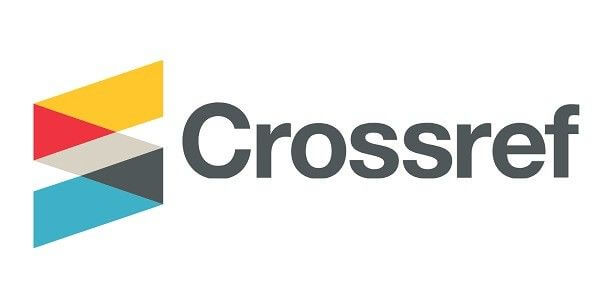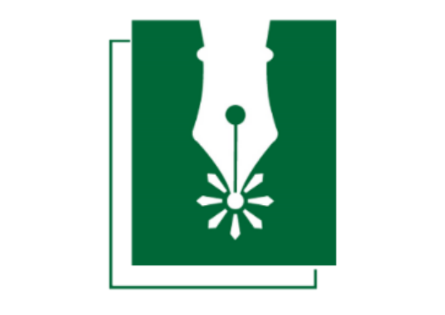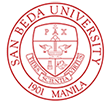Impact of the COVID-19 Pandemic on the Life of Faculty Teaching in Universities
Keywords:
COVID -19, Braun-Clarke approach to thematic analysis, Academic-socio-emotional support programAbstract
COVID-19 has greatly affected the education sector compelling educators to adapt to online teaching and platforms quite abruptly. Thus, this study aims to determine the impact of this pandemic on the life of college faculty and its consequences on their social, emotional, and personal aspects due to the transition from physical classes to online lectures and design a support program to help reframe and alleviate its impacts. This is a descriptive study using a convergent mixed methods design. Employing a snowball sampling technique, a modified web-based global questionnaire that is divided into 7 sections, was administered via Google forms. With the use of SPSS v. 23, results showed from 81 respondents in 37 universities that despite the limited time and resources in the preparation, the faculty displayed an adaptive behavior. Remarkably, the narratives related impacts of emergency remote education on personal life circumstances more than what the figures showed in the statistical analysis. Three important words emerged with ambivalent themes as the general views on COVID -19 as generated by NVivo QSR: life, time and changes. Using Braun-Clarke approach to thematic analysis, the narratives also evoked that spirituality and emotions play a significant role in coping. The support program was designed with the academic, social and emotional aspects in the key result areas with proposed program and activities such as educational policy on the pedagogy of care, continuing digital literacy program, social support elements of emotional concern, instrumental aid, appraisal, virtual socialization and also conduct of webinars, workshop series and fellowship as coping mechanisms.
References
Aristovnik, A., Keržič, D., Ravšelj, D., Tomaževič, N., & Umek, L. (2020). A Global Student Survey “Impacts of the Covid-19 Pandemic on Life of Higher Education Students”. Global Database 2020. http://www.covidsoclab.org/global-studentsurvey/globaldatabase/83.
Bozkurt, A., Jung, I., Xiao, J., Vladimirschi, V., Schuwer, R., Egorov, G., Lambert, S. R., Al-Freih, M., Pete, J., Olcott, Jr., D. , Rodes, V., Aranciaga, I., Bali, M., Alvarez, Jr. A.V., Roberts, J., Pazurek, A., Raffaghelli, J. E., Panagiotou, N., de Coëtlogon, P., Shahadu, Brown, M., Asino, T. I., Tumwesige, J., Reyes, T. R., Ipenza, EB., Ossiannilsson, E., Bond, M., Belhamel, K., Irvine, V., Sharma, R. C., Adam, T., Janssen, B., Sklyarova, T., Olcott, N., Ambrosino, A., Lazou, C., Mocquet, B., Mano, M., & Paskevicius, M. (2020). A global outlook to the interruption of education due to COVID-19 Pandemic: Navigating in a time of uncertainty and crisis, Asian Journal of Distance Education (15),1.
Carstensen, L. L. , Shavit, Y. Z. & Barnes, J. T. (2020). Age Advantages in Emotional Experience Persist Even Under Threat From the COVID-19 Pandemic. Psychological Science, 31(11) 1374–1385 https://journals.sagepub.com/doi/10.1177/0956797620967261 . https://doi.org/10.1177/0956797620967261 www.psychologicalscience.org/PS
Creswell, J. W. & Plano Clark, V. L. (2011). Designing and conducting mixed methods research. (2nd ed.). Sage Publications, Inc. https://www.google.com.ph/books
Dilorio, C. K. (2006). Measurement in health behavior: Methods for research and evaluation. Wiley.
Hebebci, M. T., Bertiz, Y., & Alan S. (2020). Investigation of Views of Students and Teachers on Distance Education Practices during the Coronavirus (COVID-19) Pandemic. International Journal of Technology in Education and Science.
Howitt, D. & Cramer, D. (2017). Research methods in Psychology. (5th ed.). Pearson Education Limited.
Korkmaz, G. & Toraman, Ç. (2020). Are we ready for the post-COVID-19 educational practice? An investigation into what educators think as to online learning. International Journal of Technology in Education and Science (IJTES), 4(4), 293-309. ISSN: 2651-5369
Kraft, M. A., Simon, N. S. & Lyon, MA. (2020). Sustaining a Sense of Success: The Importance of Teacher Working Conditions During the COVID-19 Pandemic. Annenberg Brown University EdWorkingPaper No. 20-279.
Nicomedes, CJ. C. Arpia, HM. S., Roadel, RM.,Venus , CA. S., Dela Vega, AF, Ibuna, JM. T., & Avila, RM. A. An Evaluation on Existential Crisis of Filipinos during the Covid-19 Pandemic Crisis. https://www.researchgate.net/publication/341411489
Nicanor-Perlas, N. (18 April 2020). Covid-19 Pandemic: the Philippine Experience: The Case for a Precision Quarantine and Immunity (PQI) Approach A Briefing Paper. www.covidcalltohumanity.org
Nolen-Hoeksema, S., Fredrickson, B. L., Loftus, G. R. & Wagenaar, W. A. (2009). Atkinson & Hilgard’s Introduction to Psychology.
(15th ed), Wadsworth Cengage Learning.
Polit, D. F. & Beck, C. T. (2006). The Content Validity Index: Are you sure you know what’s being reported? Critique and recommendations. Research in Nursing and Health (29), 489-497. www.interscience.wiley.com DOI: 10.1002/nur.20147
Prime, H., Wade, M. & Browne, D. T. (2020). Risk and Resilience in Family Well-Being During the COVID-19 Pandemic American
Psychological Association 2020, 75, (5), 631–643 ISSN: 0003-066X http://dx.doi.org/10.1037/amp0000660
Rathus, S. A. (2012). PSYCH. (2nd Ed). WADSWORTH CENGAGE Learning. 238.
Stage, F. K. &, Manning, K. (Eds.). (2016). Research in the college context: Approaches and methods (2nd ed.) Routledge Taylor and Francis Group.
Talidong, KJ. B. & Toquero, CM. D. Philippine Teachers’ Practice to Deal with Anxiety amid COVID-19. Journal of Loss and Trauma International Perspectives on Stress & Coping, 25, (6–7), 573–579 https://doi.org/10.1080/15325024.2020.1759225
- PDF | 263
- Abstract Views | 379
Published
How to Cite
Issue
Section
Copyright (c) 2023 Ester Rada

This work is licensed under a Creative Commons Attribution-NonCommercial-NoDerivatives 4.0 International License.











